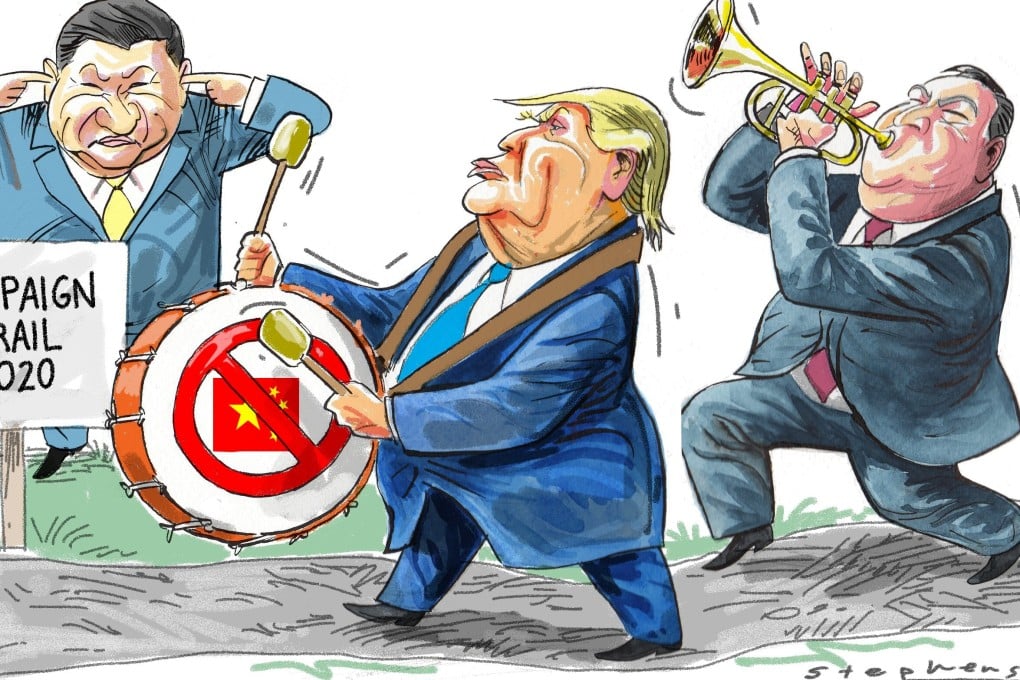Advertisement
Opinion | US’ tougher stance on the South China Sea is part of Trump’s re-election campaign
- Trump’s team is using China as one of its lines of attack against the president’s opponent Joe Biden while capitalising on the growing realisation in the Asia-Pacific region that China’s expansionist plans must be countered
Reading Time:3 minutes
Why you can trust SCMP

The United States finally said what the world already knew: China’s claims in the South China Sea have no legal basis. It took four years after an international tribunal ruled on the issue. This raises the question why, with only six months left in the current administration, US Secretary of State Mike Pompeo made this declaration now?
Two reasons stand out – US President Donald Trump campaign’s attempt to bolster its tough-on-China credibility ahead of the upcoming presidential election, and galvanising the growing regional distrust of China to reassert the US as a regional power. If Beijing misreads either of these powerful political forces and provokes a confrontation, its geopolitical overreach will face a backlash that has long been brewing in the region.
With US election season in full swing, Trump attack ads air daily in battleground states with hundreds of millions of dollars in play. The campaign has decided to use China as one of several lines of attack against Trump’s opponent Joe Biden. It’s going to be a tough sell.
Advertisement
Pompeo’s highlighting of the South China Sea dispute gives the administration another China talking point. It comes after imposing extensive tariffs, sanctions on Communist Party members involved in the imprisonment of Uygurs in what are widely considered concentration camps, a crackdown on Chinese students with military ties studying in the US and sanctions over Beijing’s new security law for Hong Kong.

02:32
Washington’s hardened position on Beijing’s claims in South China Sea heightens US-China tensions
Washington’s hardened position on Beijing’s claims in South China Sea heightens US-China tensions
Attacking Biden over being soft on China and somehow putting the country at risk is part of a broader law and order theme, replete with fearmongering over what a Biden presidency might mean for the average American. The messaging is relentless and, so far, completely unconvincing.
Advertisement
Advertisement
Select Voice
Choose your listening speed
Get through articles 2x faster
1.25x
250 WPM
Slow
Average
Fast
1.25x
